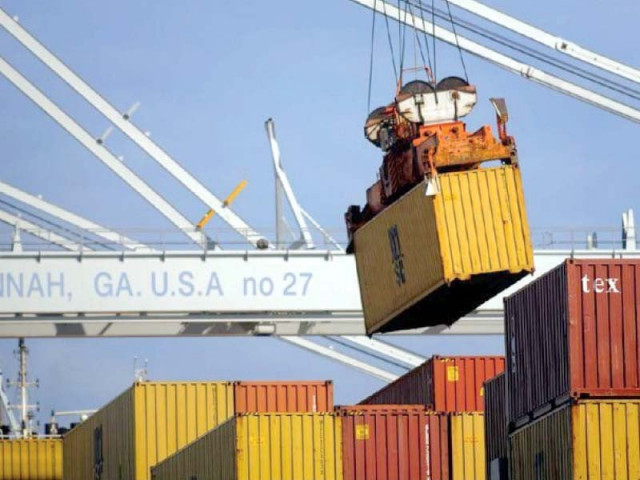Finance minister seeks to slash imports
Insists govt has steered country away from default on payments

Finance Minister Miftah Ismail has said the risk of Pakistan’s default on international payments is fading with every passing day, as tough decisions like increase in energy prices have cut imports and slashed demand for foreign exchange.
“The worst is behind us now…and the good days are back,” he said during his first official visit to Pakistan Stock Exchange (PSX) on Friday.
“We may still face (import payment) pressure over the next couple of weeks.”
The elevated import payments and debt repayments have caused a fast depletion of foreign exchange reserves to the critical level of less than two months of import cover at $8.3 billion. This caused a historically large devaluation of the rupee against the US dollar during July.
These developments raised the possibility of default on international payments.
“I am telling you seriously. We were nearing default when we came to power (in April 2022) and that’s why I went to the IMF within two days after taking charge of the ministry.”
The country had only $10 billion in foreign exchange reserves when the PML-N formed a coalition government in April, while foreign debt repayments amounting to $21 billion were scheduled for the current fiscal year 2022-23, he said.
The IMF executive board is scheduled to meet on August 24 to consider approving its extended $7 billion loan programme for Pakistan and subsequently issue the next tranche of $1.2 billion this month.
Ismail said his government has sought IMF approval to give tax relief worth Rs7 billion to small traders, as the ministry has accepted the traders’ demand to withdraw the recently introduced fixed taxation on their utility bills.
“Finance secretary is to talk to the IMF today (Friday) to discuss the tax break (for small traders). I have promised the IMF to discuss each and every move on tax collection.”
He assured bankers that the special tax of 2.5-5% imposed on financial institutions for failing to disburse the assigned amount of credit to the private sector is not being imposed from last year, but from this year.
The government imposed 5% additional tax on those banks whose advance to deposit ratio (ADR) would remain below 40% and 2.5% tax on those whose ADR would stay above 40% but less than 50%.
The minister said his government is working on an export package. It is considering giving some tax incentives to boost the country’s exports.
“I don’t personally believe in the import substitution economic model, but we should take measures for export expansion and export promotion model,” he said.
Export industry is being supplied power at Rs9 per unit and gas at $9 mmcd despite huge shortfall of gas. “We have done something which would increase export let production.”
He said the growth in exports is the only way forward to run the domestic economy with moderate and sustainable twin trade and current account deficits.
Pakistan had hit a record high current account deficit of $48.3 billion and second historic high current account deficit (CAD) of $17.40 billion (4.5% of GDP) in the fiscal year that ended on June 30, 2022.
No country can grow and reach financial stability with this kind of twin deficit. However, a moderate and sustainable CAD of 1-2% of GDP is good, and not a bad thing, for a developing country like Pakistan.
“A moderate and sustainable current account deficit incentivises foreigners to transfer their savings into Pakistan.”
Pakistan has unfortunately seen time and again unsustainable twin deficits in its history, as the country made most of the imports for local consumption and not for export purposes. He said he had aggressively cut the import bill to $4.9 billion in July from a second historical high of $7.7 billion in June to avert the payments default.
Published in The Express Tribune, August 6th, 2022.
Like Business on Facebook, follow @TribuneBiz on Twitter to stay informed and join in the conversation.



















COMMENTS
Comments are moderated and generally will be posted if they are on-topic and not abusive.
For more information, please see our Comments FAQ